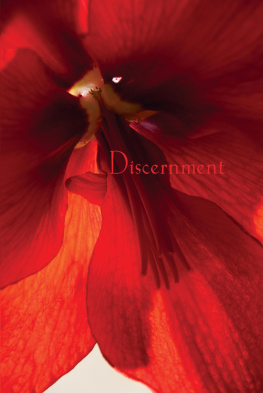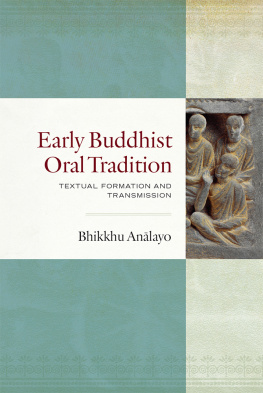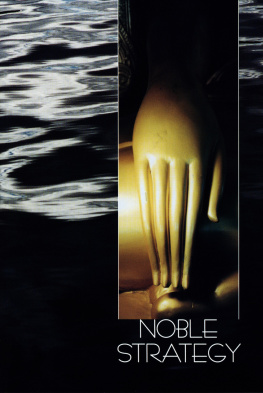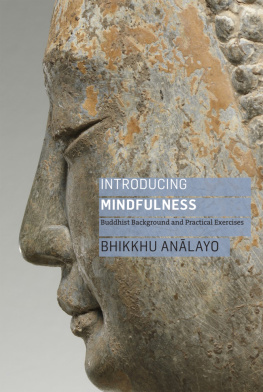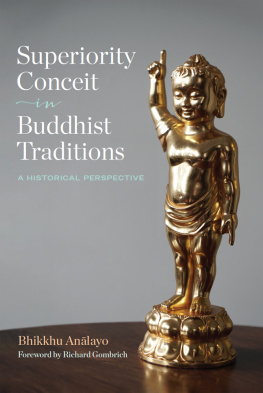Thanissaro Bhikkhu - Beyond All Directions: Essays on the Buddhist Path
Here you can read online Thanissaro Bhikkhu - Beyond All Directions: Essays on the Buddhist Path full text of the book (entire story) in english for free. Download pdf and epub, get meaning, cover and reviews about this ebook. year: 2013, publisher: Metta Forest Monastery, genre: Religion. Description of the work, (preface) as well as reviews are available. Best literature library LitArk.com created for fans of good reading and offers a wide selection of genres:
Romance novel
Science fiction
Adventure
Detective
Science
History
Home and family
Prose
Art
Politics
Computer
Non-fiction
Religion
Business
Children
Humor
Choose a favorite category and find really read worthwhile books. Enjoy immersion in the world of imagination, feel the emotions of the characters or learn something new for yourself, make an fascinating discovery.
- Book:Beyond All Directions: Essays on the Buddhist Path
- Author:
- Publisher:Metta Forest Monastery
- Genre:
- Year:2013
- Rating:5 / 5
- Favourites:Add to favourites
- Your mark:
- 100
- 1
- 2
- 3
- 4
- 5
Beyond All Directions: Essays on the Buddhist Path: summary, description and annotation
We offer to read an annotation, description, summary or preface (depends on what the author of the book "Beyond All Directions: Essays on the Buddhist Path" wrote himself). If you haven't found the necessary information about the book — write in the comments, we will try to find it.
Thanissaro Bhikkhu: author's other books
Who wrote Beyond All Directions: Essays on the Buddhist Path? Find out the surname, the name of the author of the book and a list of all author's works by series.
Beyond All Directions: Essays on the Buddhist Path — read online for free the complete book (whole text) full work
Below is the text of the book, divided by pages. System saving the place of the last page read, allows you to conveniently read the book "Beyond All Directions: Essays on the Buddhist Path" online for free, without having to search again every time where you left off. Put a bookmark, and you can go to the page where you finished reading at any time.
Font size:
Interval:
Bookmark:
This work is licensed under the Creative Commons Attribution-NonComercial 3.0 Unported. To see a copy of this license visit http://creativecommons.org/licenses/by-nc/3.0/. Comercial shall mean any sale, whether for commercial or non-profit purposes or entities.
Metta Forest Monastery
Valley Center, CA 92082-1409
U.S.A.
More Dhamma talks, books and translations by Thanissaro Bhikkhu are available to download in digital audio and various ebook formats at dhammatalks.org.
A paperback copy of this book is available free of charge. To request one write to: Book Request, Metta Forest Monastery, PO Box 1409, Valley Center, CA 92082 USA.
Many people have read earlier versions of these essays and have kindly offered suggestions for improvements. In particular, I would like to thank the monks here at the monastery, as well as Michael Barber, Bok-Lim Kim, Addie Onsanit, Nathaniel Osgood, Xiaoquan Osgood, Dale Schultz, Mary Talbot, and Jane Yudelman. Any mistakes that remain, of course, are my own responsibility.
Some of these essays, in earlier incarnations, have appeared in Tricycle, Shambhala Sun, and Insight Journal. I would like to thank the editors of these journals for their help in making the writing clearer and more coherent. The fact that the essays were originally intended for different audiences explains the overlap that occasionally occurs among them, as well as the inconsistent use of Sanskrit and Pli terms: karma, dhamma, and nibbna. I hope that this poses no difficulties.
These and other essays on Buddhist practice are available on the Internet at www.dhammatalks.org.
hnissaro Bhikkhu
(Geoffrey DeGraff)
Metta Forest Monastery
Valley Center, CA 92082-1409
August, 2013
If youd had the opportunity to approach the Buddha and ask to be his student, he would have expected a few things of you: to be honest and observant, to show him respect, to pay him careful attention, and to try your best to master the skills he taught. When you met these conditions, he in turn would have felt some obligations to you: to give you thorough instructions, to test you to make sure you understood the instructions, andmost interestinglyto provide what he called, protection in all directions.
The idea that teachers should offer protection to their students was apparently common in ancient India. This is one of the reasons why people would seek out teachers. It also explains why many people, on becoming convinced that the Buddha was the teacher they wanted, would take refuge in him, in his Dhamma (his teachings), and in his Sagha of monks. They wanted the protection offered by him, his teachings, and those who also lived by those teachings.
The type of protection offered by different teachers in ancient India would depend on the skills they taught and the dangers from which they felt those skills would offer protection. This was not simply a cultural oddity from the Buddhas time. Researchers have found that people are most likely to master skills when they have a keen sense of the dangers that come from not mastering those skills, and of the safety that comes when the skills are thoroughly mastered.
In the Buddhas case, the skill he taught led to the safety of nibbna, free from the dangers of aging, illness, and death. In fact, although we think of nibbna as the name for the final goal of his teachings, it was only one of many names he gave to that goal. Some of those namesshelter, island, harbor, security, and refuge itselfmake the point that his teaching is aimed at safety. Othersthe ageless, the undecaying, the beyond, the deathless, the ultimateindicate that this safety is of an extraordinary sort: the ultimate protection from any and all dangers, the ultimate refuge to which anyone might go. Once youve reached this refuge, the Buddha has more than fulfilled his responsibility to protect you in all directions, for hes pointed you to a refuge that goes beyond all directions, a protection transcending the confines of space and time.
However, the Buddha also saw two types of dangers within space and time that can stand in the way of your achieving this refuge: outside dangers and inside ones. The world around you is a dangerous place; and your mind, a dangerous mind. Outside dangers come in the form of other peoples examples and teachings that might discourage you from making the effort to follow the path to nibbna. Inside dangers come from your own greed, aversion, and delusion, which can totally block any desire to follow the path.
In fact, these inside dangers are what leave you susceptible to unskillful outside influences to begin with. If you were innately trustworthy and good, bad outside influences would have no power over you. But, as the Buddha pointed out, the mind is capable of anything. And although he was a master of finding apt analogies, he had to admit that he could find none to adequately describe how quickly the mind can reverse itself. Love can turn to hate, good qualities to vicious ones, and even the flash of an eye is slow by comparison. Only when trained can the mind become its own refuge, and only when gaining a sense of heedfulnessthe realization that its actions can cause harm, but that the harm can be avoided through careful effortwill it willingly undergo training. Only when it sees the dangers its capable of producing will it look for external refuges under which to train.
This is why, in his capacity as a responsible teacher, the Buddha recommended that his studentsafter gaining a sense of heedfulnesstake refuge in the Buddha, Dhamma, and Sagha as a first step in overcoming both the outside and inside dangers that stand in the way of the ultimate refuge of nibbna.
When, having gone
to the Buddha, Dhamma,
& Sagha for refuge,
you see with right discernment
the four noble truths
stress,
the cause of stress,
the transcending of stress,
& the noble eightfold path,
the way to the stilling of stress:
thats the secure refuge,
that, the supreme refuge,
that is the refuge,
having gone to which,
you gain release
from all suffering & stress. Dhp 190192
To offer protection against outside dangers to that supreme refuge, the Buddha offered himself as what he called an admirable friend. Through the example of his life and the content of his teachings, he made it possible for others to realize that nibbna is an attainable and desirable goal. In a famous exchange, when his disciple nanda thought it was generous to say that having admirable friends is half of the holy life, the Buddha replied No: Its the whole. Of course, given the nature of the path to nibbna, the Buddha couldnt tread the path for his students. He wasnt a sufficient cause for their awakening, but he was a necessary one. Only by having his example and his teachings would his students possess a reliable touchstone against which they might measure other examples and teachings as to what human beings can and should attain. Without that touchstone, they could easily fall prey to teachings that would lower their sightsand to their own internal qualities that would be happy to keep their sights low. Having that touchstone would allow them to expand their horizons and raise their aspirations to a higher level.
Font size:
Interval:
Bookmark:
Similar books «Beyond All Directions: Essays on the Buddhist Path»
Look at similar books to Beyond All Directions: Essays on the Buddhist Path. We have selected literature similar in name and meaning in the hope of providing readers with more options to find new, interesting, not yet read works.
Discussion, reviews of the book Beyond All Directions: Essays on the Buddhist Path and just readers' own opinions. Leave your comments, write what you think about the work, its meaning or the main characters. Specify what exactly you liked and what you didn't like, and why you think so.






